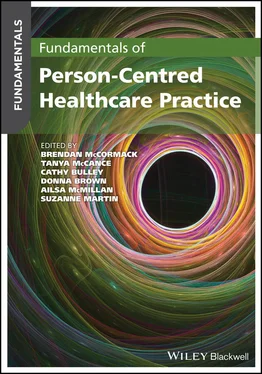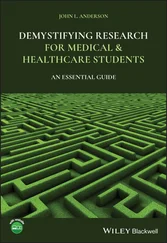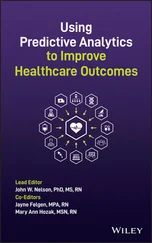The importance of self‐knowledge for developing healthful cultures
The way we see ourselves and the world can influence how we see and relate to other people, and our beliefs and values can affect how we make decisions about healthcare (see Chapters 9and 12). Thus, developing healthful relationships with the persons we care for and the persons we work with is at the heart of person‐centred practice. This requires awareness of self and others.
Health and social care practice can involve situations when difficult topics are approached during conversations between healthcare staff and the person, a significant other, a carer or a colleague. There are situations where the balancing of the risks and enabling choices and preferences may require ‘challenging’ or ‘courageous conversations’ (Masterson 2007), not only with the people we care for but with other members of the healthcare team who might have different opinions, values and beliefs (Seedhouse 2009). For these conversations to lead to better outcomes, knowledge and skills are required; for example, knowledge of the research evidence on the topic (see Chapter 32), communication strategies (see Chapter 8), interpersonal skills (see Chapter 10), and awareness of the strong emotions that might arise. To manage these situations and respond effectively, it can be helpful to be aware of those topics and behaviours that might trigger in us strong or negative emotional responses (Masterson 2007, p. 30).
When we feel that our personal self has been attacked (our ‘buttons’ have been pushed), processes are triggered through the amygdala to protect ourselves by rushing into action (fight‐or‐flight response) (Goleman 1996; Bruno 2011). To maintain professionalism in these situations, it is important to ‘cool down’. Emotional intelligence (see Chapter 10) helps us in this process. By acknowledging and listening to what our feelings are telling us and managing them more effectively to aid our logical thinking, we can regain perspective (through activation of the orbitofrontal cortex) (Goleman 1996; Bruno 2011).
Ways of cooling down include the following.
Look for alternative ways of explaining a situation (i.e. reframing a discussion).
Exchange negative thoughts for positive ones (i.e. use of thoughts and phrases that can help to shift the focus to something positive or pleasant).
Observe thoughts and feelings from a distance (i.e. practice of mindfulness).
Developing self‐awareness allows us to know ourselves better, to help make self‐regulation possible (to modify our behaviour, choose how to respond to a situation rather than following possible temptations) and to experience greater consistency between the way we behave and our attitudes. To become self‐aware, we need to reflect on what we experience when we focus, for example, on our sensations, perceptions, emotions, thoughts, attitudes, preferences and intentions (Morin 2011). Reflection is therefore a central skill in the development of self‐awareness.
Using reflection to know self
Reflection and self‐awareness are key to knowing self in order to further develop who we are as persons and as professionals. By reflecting on our actions and critically relating to them, we become aware of why we act in certain ways and introduce the potential for learning and change (see Chapter 29). Through reflection, for example, we can work on reconciling the ideal professional self and the actual professional self, the desired practice and the actual practice (Freshwater 2002).
Reflect on and write down an example of a time in your practice when the care you were providing was not consistent with those desired by the other person. For example, the person did not want to drink the nutrition supplement, try a particular exercise, take medication or vaccinate their baby. What did you do?
This activity may be deeply challenging but has the potential to help you ask yourself difficult questions in order to consider your future behaviours. To develop deep questioning skills, explore the following.
Did I live out person‐centred values?
Which element(s) of the Person‐centred Practice Framework does this map to?
What organisational pressures obstructed my perception?
How could my actions have been perceived by others?
What (if anything) do I need to change to become more person‐centred in my practice?
What is the research evidence on the topic?
Critical reflective practice, whether on an individual level or within groups, is essential to enabling persons who provide healthcare to gain insight into self, the care environment and how these entwine with their practice and the care they deliver (person‐centred processes). Reflection encompasses asking challenging questions and being able to live through the discomfort or anxiety of changing deeply held ways of being (Bolton 2014). As heightened anxiety can be counterproductive to learning, it is imperative that we remain mindful of the need to actively contribute to creating spaces in which it is safe to share thoughts and learn from our experiences (see work of Brown and McCormack 2016).
Creating the conditions to know self and others
Looking closely at self requires bravery and living with uncertainty (Bolton 2014). By standing back from the daily grind and assumptions we make and engaging in reflection, we become more aware of the influences that surround us and we are motivated to change (Seedhouse 2017). As previously highlighted, we can engage in the process of knowing self in a variety of ways. Many of these rely on others to provide us with assistance or feedback so that we can enhance our understanding of our behaviours, actions and reactions through the eyes of others. However, feedback given by the wrong person, at the wrong place or time, in an insensitive way, will add little to our knowledge of self or to creating a healthful culture. Therefore, when considering getting to know and developing self, it is important to consider the following points.
What feedback do I want and am I ready to hear it?
Who do I trust and value to assist me?
Are they the right person?
Who can support me as a person?
Is that different from who supports me in a team?
What do I need to achieve a positive outcome for all?
Either individually or in a group, reflect on what factors you think are necessary to create the conditions in which to explore knowing self and get to the heart of your practice.
You are encouraged to contemplate things such as time to reflect, quietness, being open, honest, self‐confidence, ability to think laterally and non‐judgementally about your self and practice. It is easy to be overly critical of our own practice and disappointed in ourselves. It is always good to articulate and work with positive things we have done in practice to affirm values and beliefs and be motivated to acknowledge these to improve our knowledge of self. Perhaps you were thinking of working with others and considered they needed to actively listen, be supportive, generous of self, time and knowledge, approachable, reliable and trustworthy (Heron 1999).
Throughout this chapter we have explored different perspectives of self and possible interrelations between them. As persons, we are constantly involved in a process of being and becoming. Accepting that we are persons, with our strengths and, most importantly, our vulnerabilities, is essential so that any exploration of self is undertaken in a safe environment, through engaging in reflection and gaining feedback. In this way we can become more self‐aware and find the motivation to consider the choices we make, as these contribute to making us who we are and who we become (see Chapter 29).
Читать дальше












